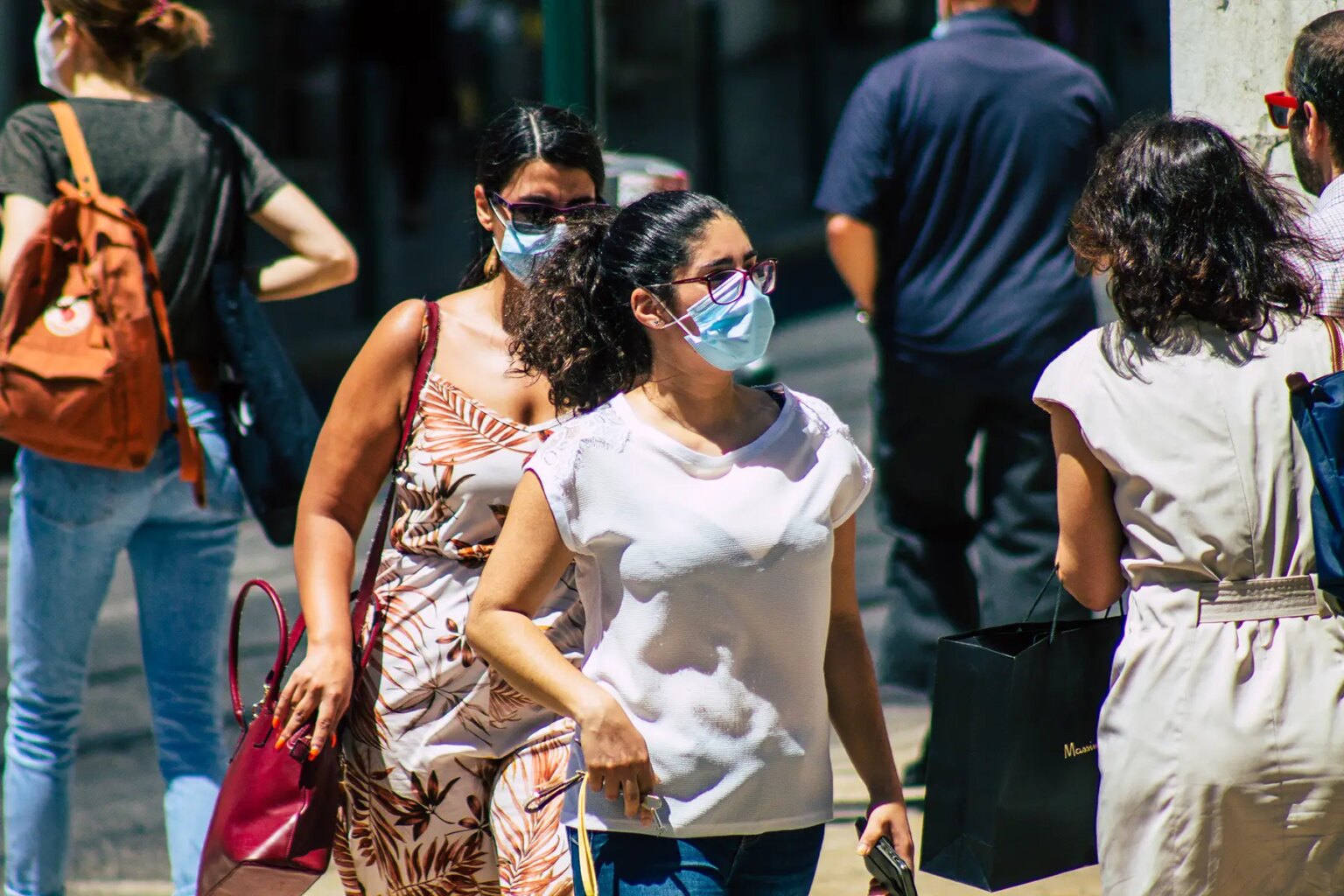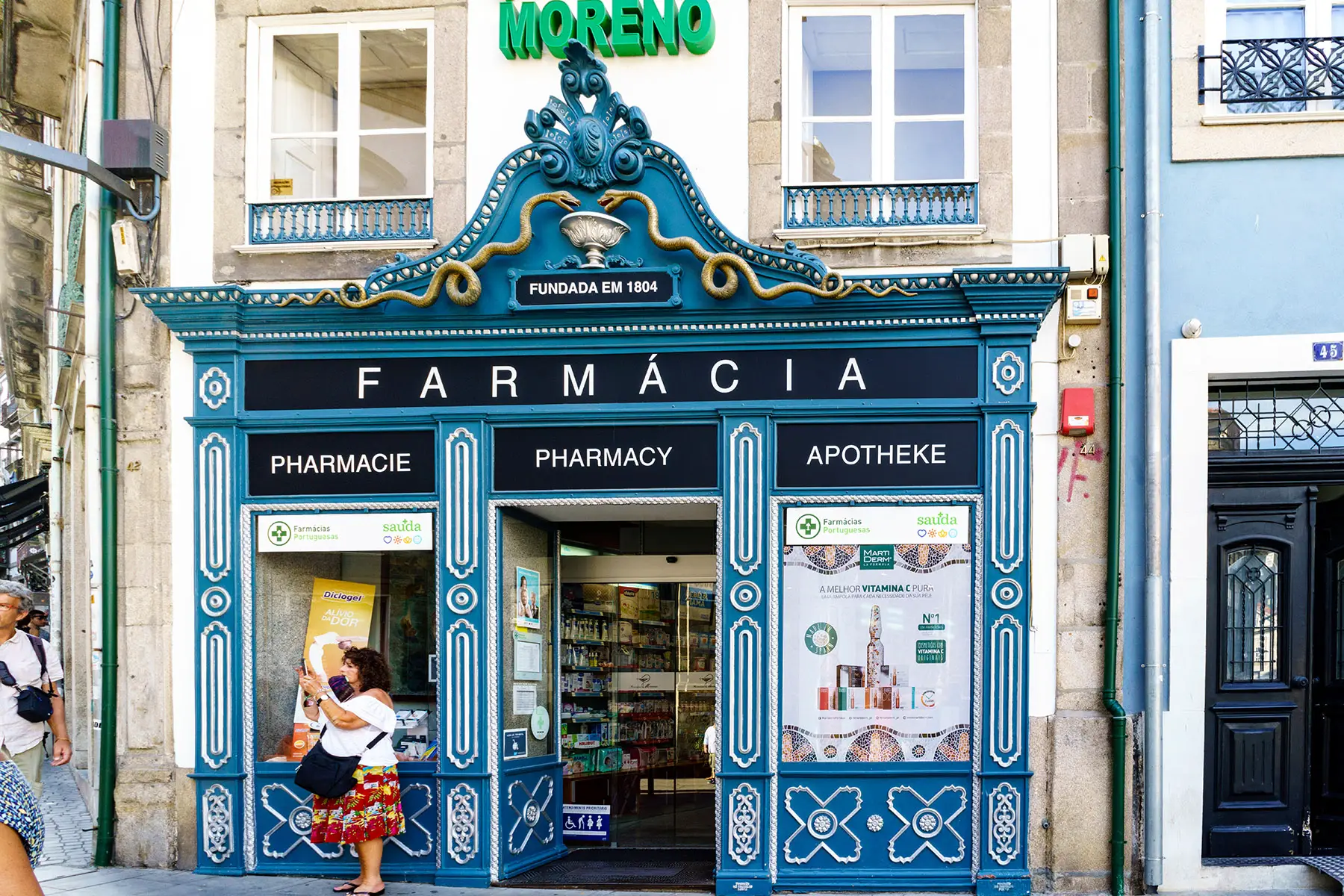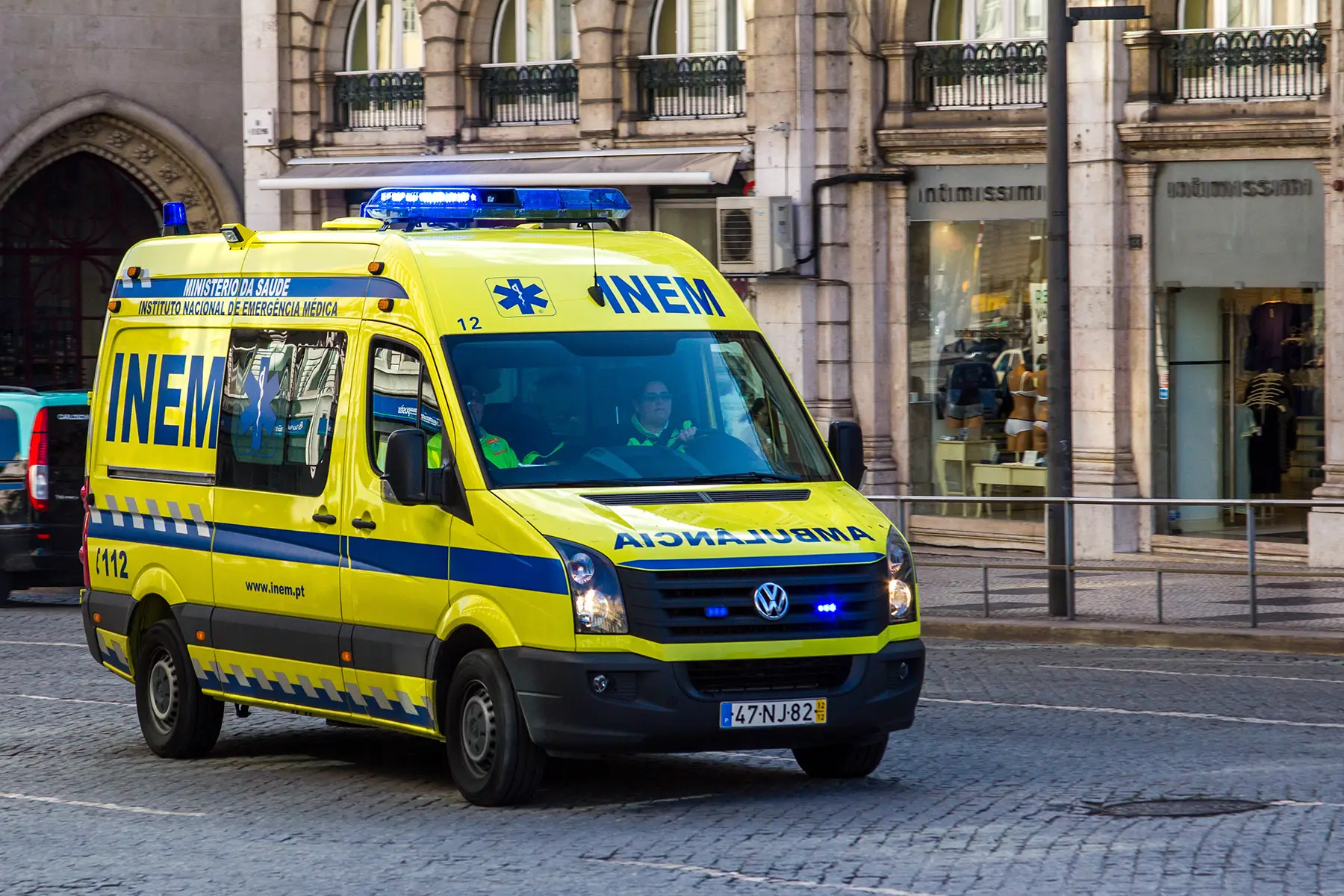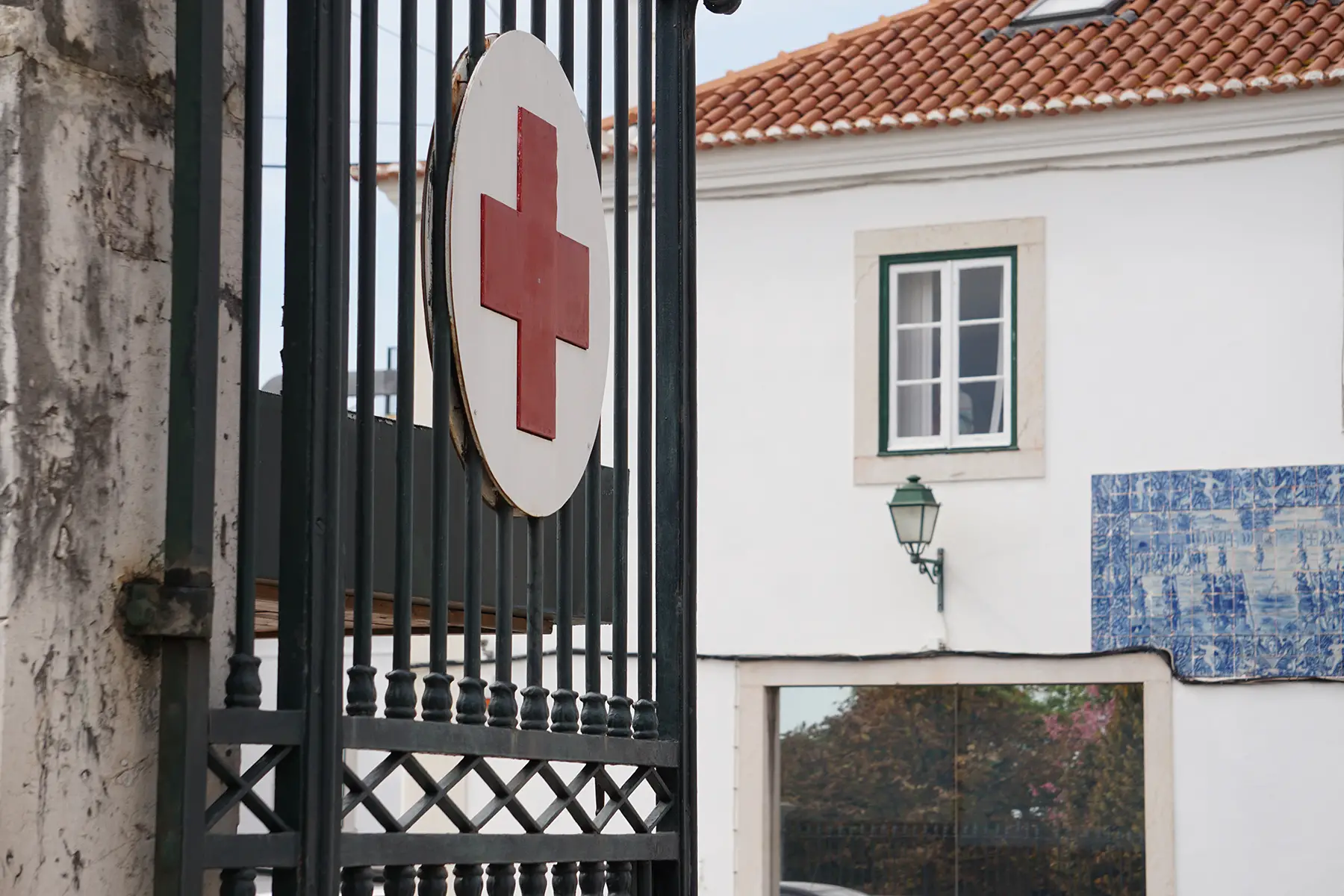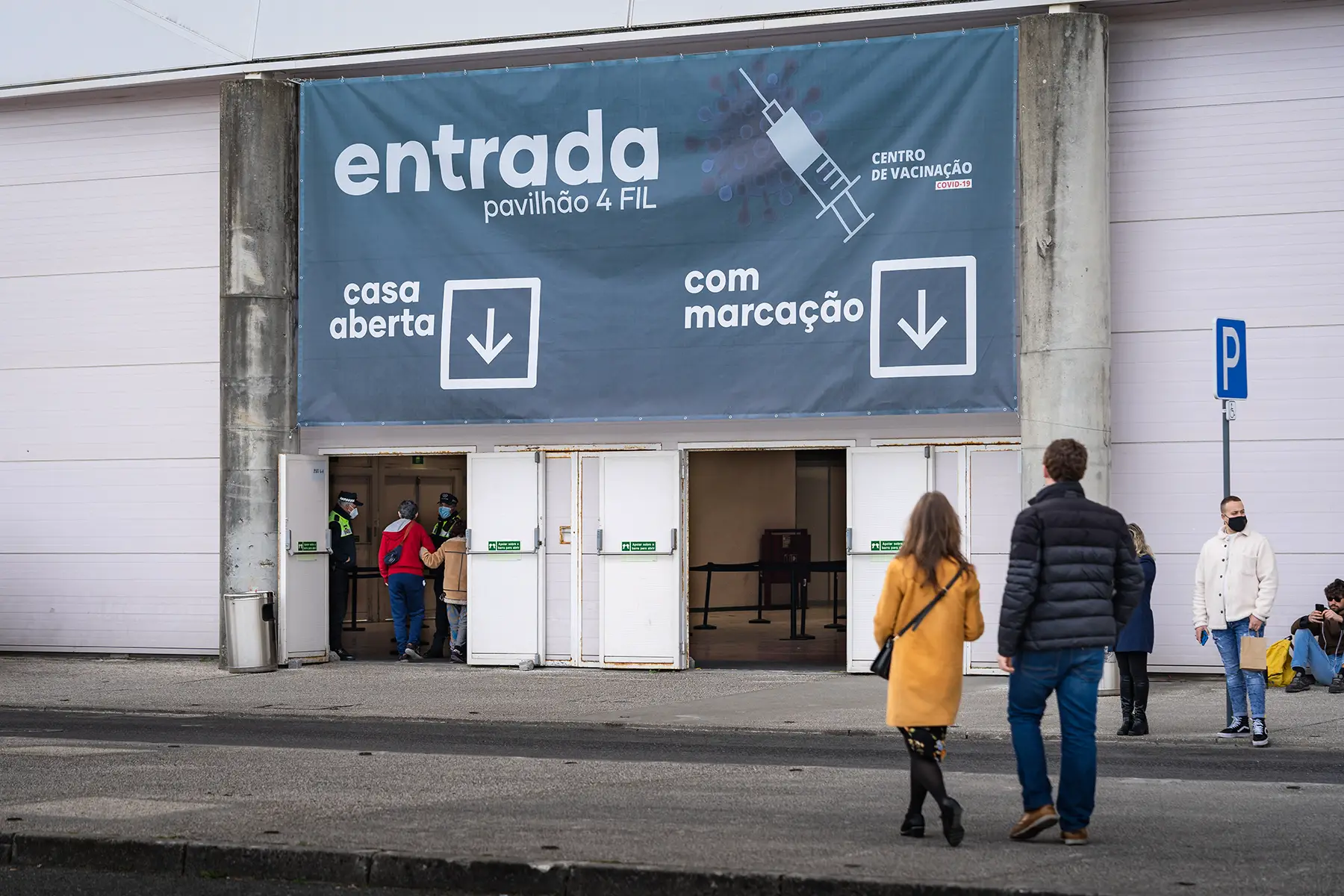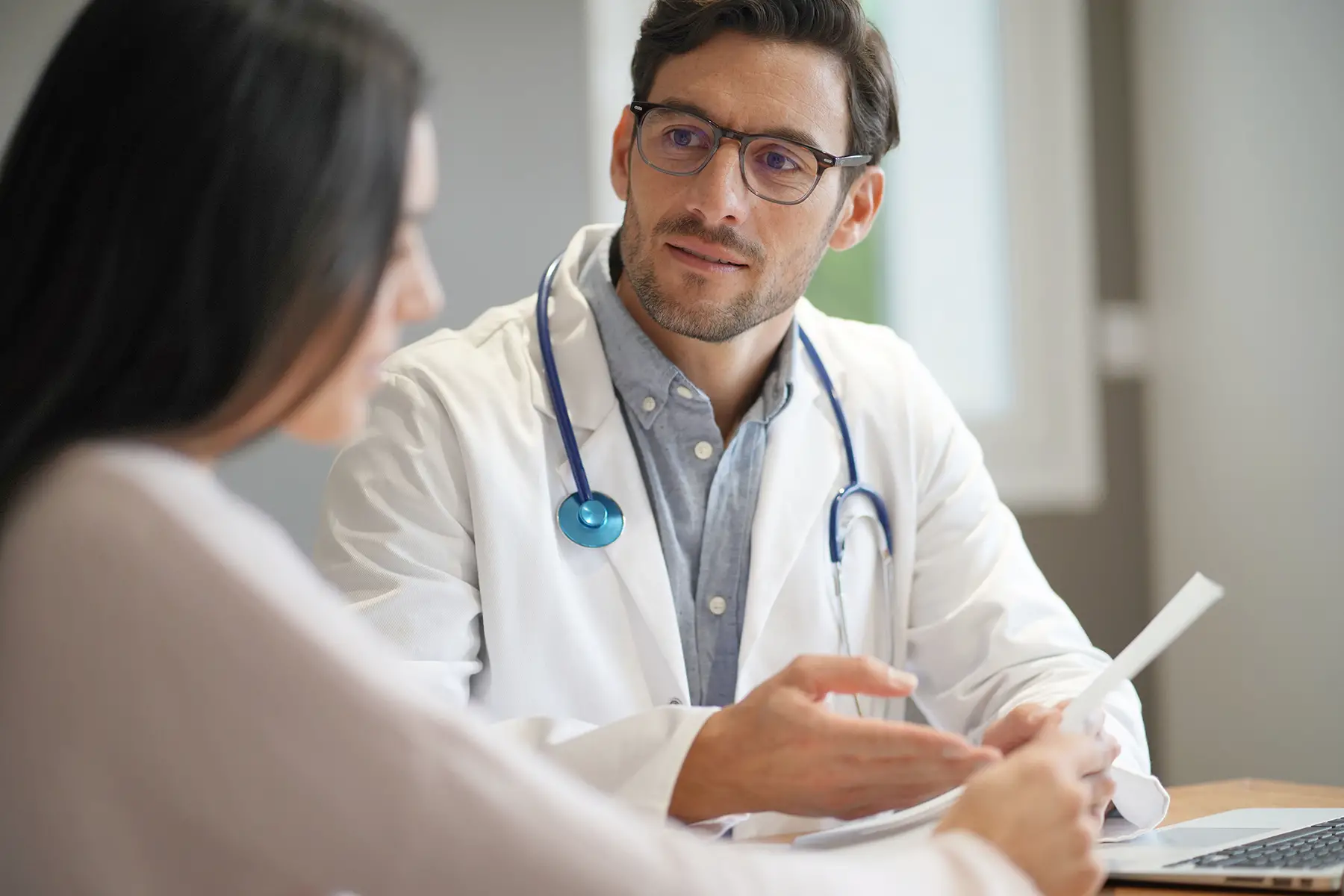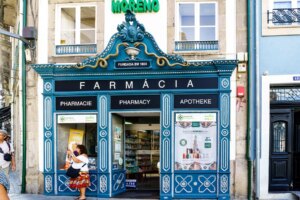Whether you are planning to visit Portugal or have relocated to the country, it’s good to know what healthcare resources are available to you. And just like every nation in the world, Portugal has struggled with several waves of the COVID-19 pandemic. However, fortunately, swift efforts to tackle the crisis mean that it has one of the highest vaccination rates in the world.
This guide provides an overview of the state of COVID-19 in Portugal and explains where to get updated information and support, including:
- Co ronavirus in Portugal
- COVID-19 rules and measures in Portugal
- Apps for COVID-19 information and support
- Coronavirus testing in Portugal
- COVID-19 vaccinations in Portugal
- International travel during COVID-19 in Portugal
- Long COVID support in Portugal
- COVID-19 support for businesses, freelancers, and the self-employed
- COVID-19 and education in Portugal
- Support for vulnerable people in Portugal during coronavirus
Cigna Global
Want access to the best private medical services in Portugal? Speak to the healthcare professionals at Cigna Global today and find a policy that’s right for you. Take advantage of their global network of doctors, specialists, therapists and more with coverage tailor-made for you and your family. If you’re starting a new life in Portugal, get peace of mind with Cigna Global.
Coronavirus in Portugal
After the first coronavirus case was recorded in March 2020, Portugal, like every other country in the world, initially had a hard time dealing with the pandemic. The first coronavirus-related death was on 16 March 2020, and the virus then swept through the country’s aging population. However, since then, the country’s vaccination campaign has overtaken that of every other nation in Europe. In fact, Portugal boasts one of the highest vaccination rates in the world and no longer requires proof of vaccination or a negative test result to enter the country.

The Ministry of Health (Ministério da Saúde) has overall responsibility for dealing with the pandemic on a national level. Within this ministry, the Directorate-General of Health (Direção-Geral da Saúde, DGS) oversees disease prevention and spearheads the COVID-19 response. The government also appointed a senior military officer to take charge of its vaccination task team, the success of which has been widely praised.
It is worth noting that the autonomous regions of Madeira and the Azores have their own regional public health bodies. However, the Portuguese national government shares daily updated statistics on COVID-19, including data from these autonomous regions. The statistics include the numbers of cases, deaths, and hospitalizations, alongside an interactive map.
Public and private healthcare options
Portugal’s public healthcare service Servico Nacional de Saude (SNS) offers a range of care, testing, and treatment to all residents in the country, including expat workers and retirees. Although the World Health Organization (WHO) currently ranks it twelfth, SNS waiting times can be long due to over-subscription.
Furthermore, state health insurance will sometimes not cover all costs associated with your care. And given that around half of Portugal’s 200 hospitals are private, you may wish to arrange additional coverage by getting private health insurance.
There are numerous expat-friendly health insurance companies that provide private coverage packages. Some of the largest ones include:
COVID-19 rules and measures in Portugal
Not long after registering its first case of COVID-19, Portugal introduced several measures to prevent the spread of the virus. Fortunately, the country’s geographical location as mainland Europe’s most western nation meant that COVID-19 reached it later than its European neighbors. This allowed Portugal to learn from what happened in Spain and Italy, and to act more quickly.
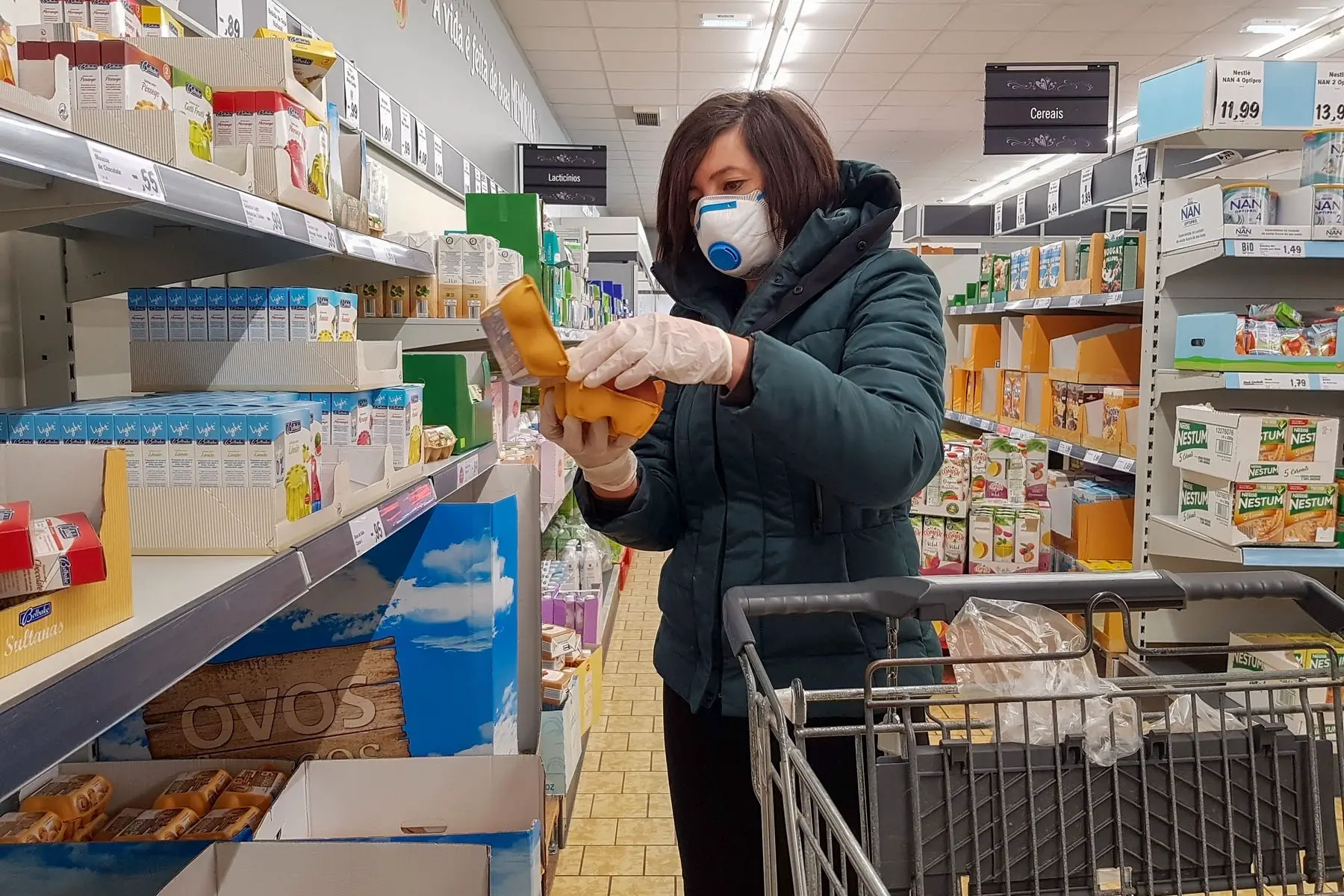
As a result, the country closed its schools when 245 COVID-19 cases had been reported, which is much lower than the 2,140 cases Spain had when it did the same. As cases continued to surge, new rules were soon implemented, including lockdowns and strict border controls.
It is important to be aware that COVID-19 regulations are constantly changing, and you can refer to the Portuguese coronavirus website and the links below for the latest updates.
Lockdowns, masks, and social distancing
So far, the measures taken have included the following:
- Lockdowns – starting on 18 March 2020, Portugal has had multiple lockdown stages. Stricter rules applied for the most affected districts. In general, measures have included movement restrictions, the closing of non-essential businesses, and limits on social gatherings.
- Face masks – this first became mandatory for indoor spaces and public transport on 30 April 2020. You can find information on the latest guidelines here.
- Border controls – on 9 March 2020, the government suspended all flights from areas affected by COVID-19. Later, the requirement to provide negative coronavirus tests to enter Portugal was introduced. Other measures may include quarantine periods if you travel from a high-risk country, and providing EU covid certificates showing vaccination or recovery from covid. You can see the latest rules here.
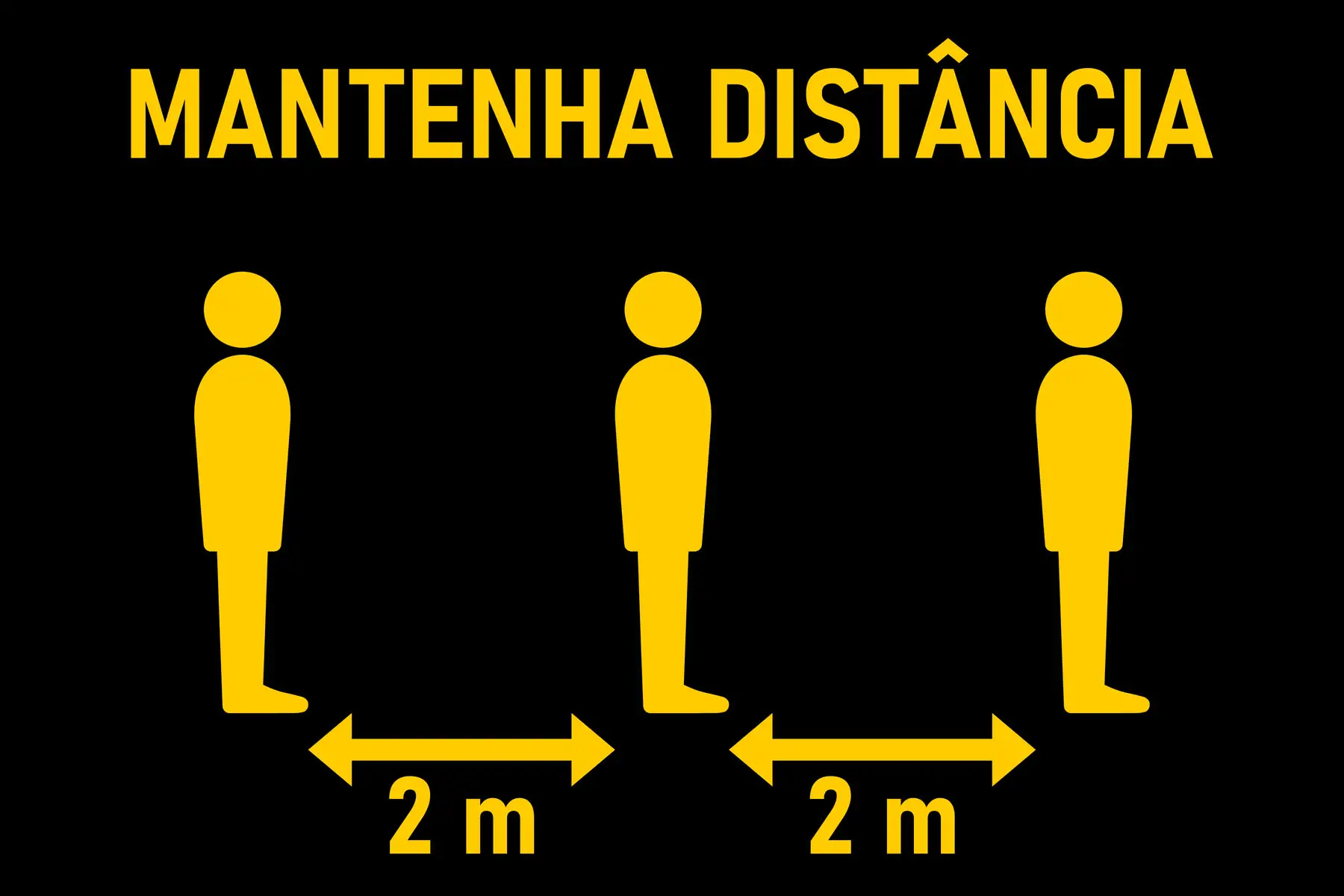
- Social distancing and isolating – Portugal also introduced the two-meter social distancing rule. If you have coronavirus symptoms or have been in contact with someone who tested positive, you should isolate yourself first, then call the Portuguese Healthcare Contact Line (SNS 24). Local authorities will check that you are self-isolating.
- Contact tracing – on 14 October 2020, the government introduced a tracing app called StayAway COVID. The app tries to prevent high-risk contacts by alerting users when they have been close to someone that tested positive.
Latest guidelines and restrictions
The National Health Service (Serviço Nacional de Saúde, SNS) has shared a series of health and safety guidelines (in Portuguese) to help you stay safe during COVID-19 in Portugal. You can also find the latest rules regarding restrictions, events, and face masks (in English) here.
This includes information such as when you will need to present a Digital COVID Certificate as proof of vaccination or recent COVID-19 recovery.
Notably, you will need to do this when you:
- Enter bars and nightclubs
- Visit hospitals or elderly care homes
- Travel by air and sea
- Enter large events
A list of measures is also available on the Portuguese tourism board website. It is also important to note that fines apply when measures are not met, and these can range from €100 to €10,000.
Apps for COVID-19 information and support
Since the pandemic began, many countries have had to adapt their face-to-face services. As a result, a variety of apps have been developed to help you interact with healthcare services from a distance, or find support related to COVID-19. These include:
- Passe Covid – allows airlines, businesses, and event hosts to validate the digital COVID pass
- SNS 24 – provides access to a range of information and services related to the national healthcare system; including checking appointments, prescriptions, and obtaining the digital COVID pass
- StayAway COVID – alerts users when they have been in contact with someone that tested positive for COVID-19; however, many citizens have since deleted the app
Coronavirus testing in Portugal
There are two kinds of tests that you can take to check if you have COVID-19 in Portugal: a rapid antigen test (teste rápido antigénio), or a PCR (polymerase chain reaction) test (teste RT-PCR).
Rapid antigen test
Rapid antigen tests are available all over Portugal. They are mostly provided by pharmacies or medical clinics. In some cases, locals can have these for free. For example, if they are prescribed by a doctor or if their local council has made these complimentary. Otherwise, you will need to pay for this service.
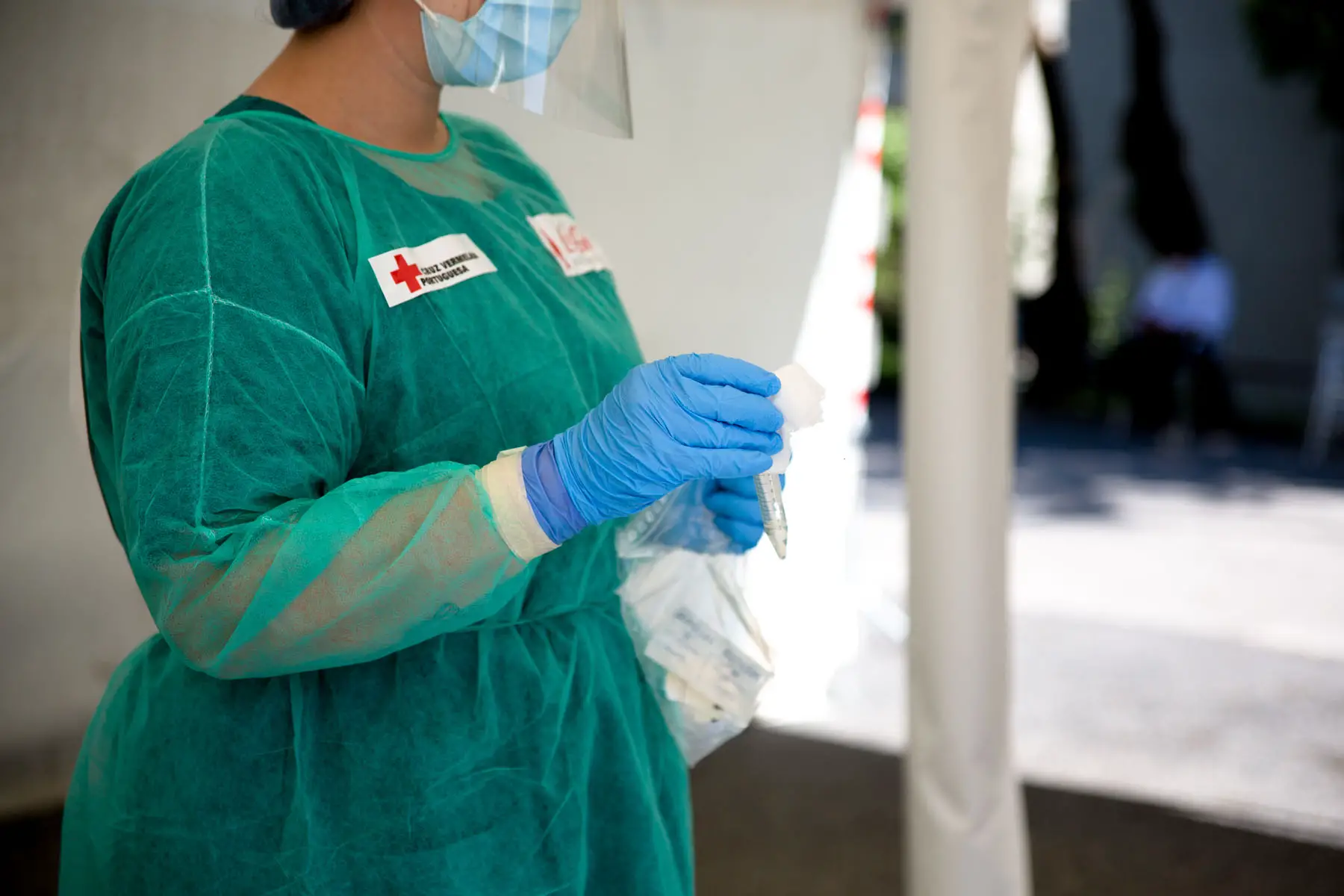
However, even if you don’t have any coronavirus symptoms, you can always use these to check if you are infectious. You can:
- Pick up a testing pack from a pharmacy or a supermarket
- Head to a covid testing site, although you may need to book this first; also note that Madeira and the Azores have different fees and facilities
- Order a test online from a pharmacy or use delivery platforms like Glovo
The process is similar to a pregnancy test and it usually takes about 30 minutes to get your result. If you go to a testing site, you will receive your results via email within a few hours. If you test yourself at home, you will need to rub the cotton swab around each nostril, then follow the instructions on the package. For travel purposes or to attend an event, you may need to show a certificate issued by a pharmacy or a clinic.
PCR tests
PCR tests also detect coronavirus infections. They are sometimes recommended to confirm antigen test results, and for people who have symptoms or have recently been in contact with someone who tested positive for the virus. They are very accurate when properly performed by a healthcare professional. However, even these tests can miss some cases. You can book a test online through Glovo or head to a PCR testing site. These include local airports, private labs, and collection points.
A PCR test can be free in certain councils or if a doctor requests it. Otherwise, it can cost anywhere from €60 to €100. After undertaking the test, a lab will examine your sample. From there, it will take about 24–48 hours to receive the results. You can request a free PCR test in Madeira. However, do keep in mind that the government of the Azores no longer has agreements with labs to test travelers before their arrival on the islands. You will have to find a lab and pay to have a PCR test done before traveling to the Azores, and you can do the same before leaving.
If you test positive for coronavirus in Portugal
If you test positive for COVID-19 in Portugal, you should do the following:
- Self-isolate for at least 10 days starting from the date of your test
- If you tested positive with an antigen test, you should report your result to the National Healthcare line (SNS 24) on 808 24 24 24. After that, you should perform a PCR test within 24 hours to confirm the result. If you develop severe symptoms, call the National Emergency number 112.
- Inform your employer, school, and anyone you have recently been in contact with
If you share a house with someone who is self-isolating, you should also practice social distancing and wear a mask. Health authorities advise that vulnerable groups such as the elderly, chronically ill, and pregnant women should avoid contact with anyone who has symptoms. Travelers can also check health advice with the national tourism board.
If you have COVID-19 in Madeira and the Azores
If you are experiencing COVID-19 symptoms anywhere in Portugal, you should book a PCR test, contact health services, and self-isolate until you receive the results. This includes the autonomous regions of Madeira and the Azores.
In Madeira, you should contact the COVID-19 helplines for clarity on test results. Travelers waiting for double testing should also do the same. You can reach SESARAM (Health Services of the Autonomous Region of Madeira), on:
- Landline: (+351) 291 208 738 / 291 208 700 / 291 149 490
- Mobile: (+351) 969 320 327 / 969 320 235
If you test positive or develop covid symptoms in the Azores, such as a fever, cough, and difficulty breathing, you should contact the Azores Health Line on (+351) 808 24 60 24.
COVID-19 antibody tests in Portugal
COVID-19 antibody tests (teste de anticorpos or teste sorológico) can determine if you have developed antibodies to the virus. This is a good way to find out if you have recently had covid as antibodies are produced in response to an infection or vaccine. The test requires collecting a small blood sample and sending it off to a lab.
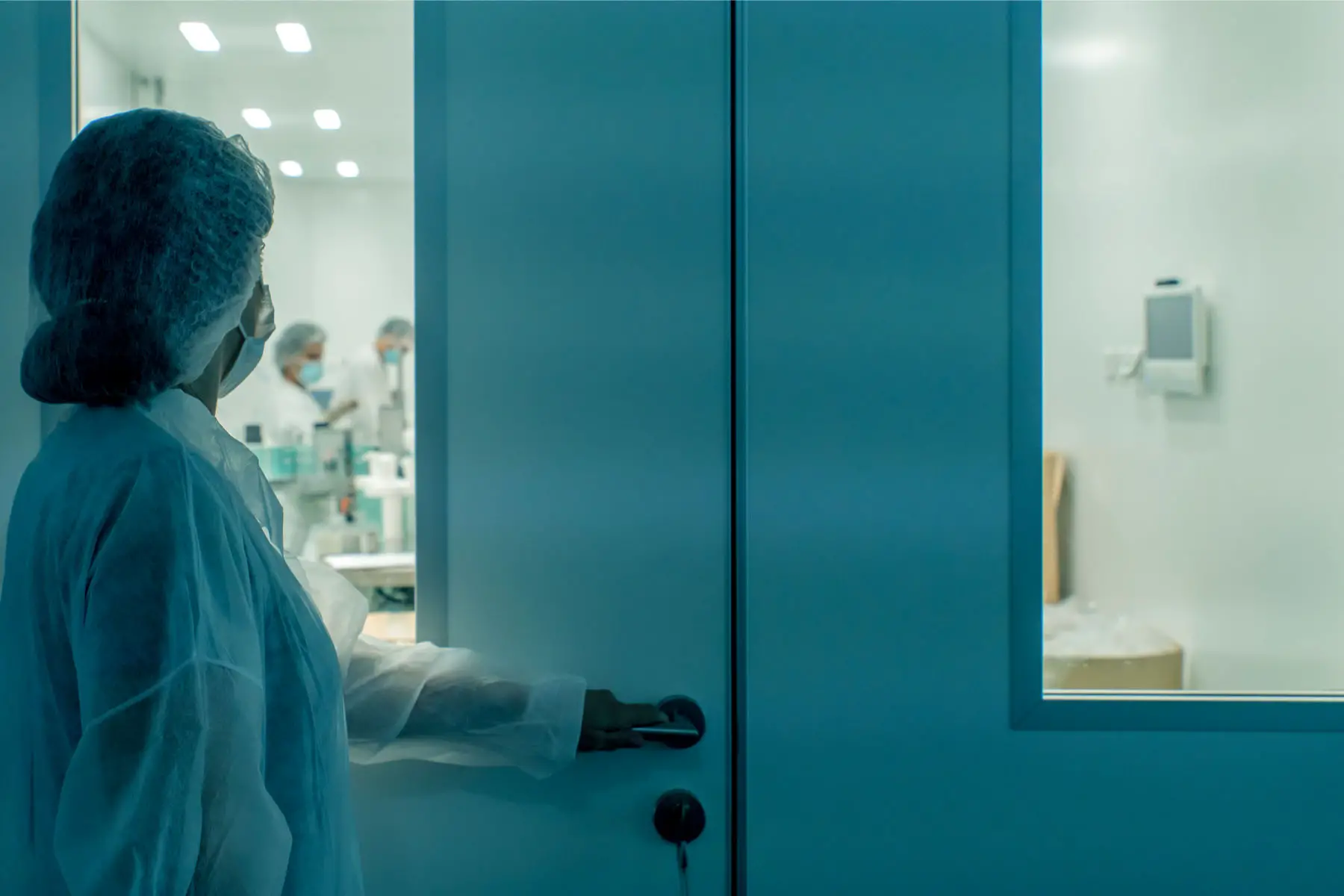
Notably, even if the result comes back negative, it doesn’t mean that you haven’t had covid. On the contrary, it could mean that your body hasn’t generated antibodies yet. In general, these tests are not recommended to diagnose COVID-19.
In Portugal, COVID-19 antibody tests are mainly available in private clinics and cost between €20 and €40. There are two types of tests:
- Rapid tests (testes qualitativos) – these determine the presence or absence of immunoglobulin (IgG) antibodies, giving a positive or negative result
- Quantitative tests (testes quantitativos) – these determine the level of antibodies your body has created; this test is most suitable for post-vaccination
COVID-19 vaccinations in Portugal
Portugal started its vaccination campaign in December 2020. Since then, it has achieved one of the highest vaccination rates in the world. You can check the current number of people vaccinated against covid on the government’s tracking site.
The country’s vaccination program was set in stages. It started with health professionals, over-65s, and people with serious health conditions, before moving on to other age groups.
The current vaccines available in Portugal are:
- Pfizer/BioNTech
- Oxford/AstraZeneca (AZ)
- Moderna
- Janssen (Johnson and Johnson)
Notably, in Portugal, you can’t choose which vaccine you would like to be inoculated with. And to receive the vaccine, you need to book an appointment in advance. You should bring your ID on the day, as well as your vaccination papers if you are going for the second dose. Even without a local health service number, you can still request vaccination. More information is available on the COVID-19 website and the local health service sites for Madeira and the Azores.
International travel during COVID-19 in Portugal
If you’re planning to book an international trip from Portugal, you should check the coronavirus restrictions of your destination and any place you might travel through. You also need to follow the rules in place when you return to Portugal. The International Air Transport Association (IATA) has an interactive map with specific rules for countries. Moreover, the Ministry of Foreign Affairs (Ministério dos Negócios Estrangeiros) keeps an updated list of countries that Portugal allows air traffic to and from and the various rules for travelers. For visas or extended stays, you can reach out to the Portuguese border service (Serviço de Estrangeiros e Fronteiras).
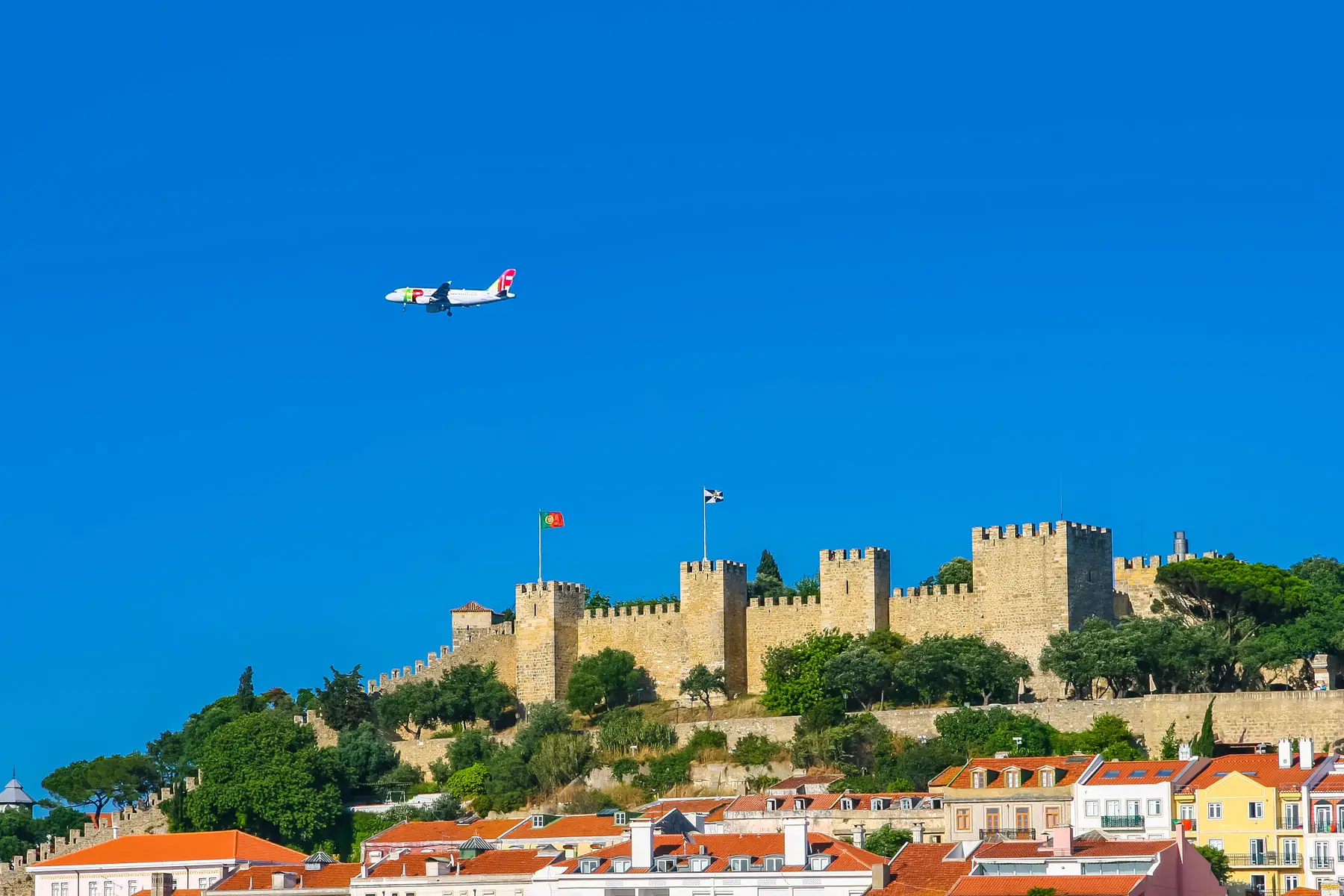
Nonetheless, you should always confirm the details with your airline. Depending on where you are coming from, you may need to show the following when entering Portugal:
- PCR Test (72 hours before boarding)
- Rapid Antigen Test (48 hours before boarding)
- Valid EU Digital COVID Certificate
- Valid vaccination or recovery certificate issued by a third country, under reciprocal conditions (see the country list at Visit Portugal)
- Register at this portal
Accommodation providers may also require this documentation at check-in. However, children under the age of 12 who are accompanied by an adult don’t need to present anything. If you have been vaccinated, you can show a covid pass for EU travel using the SNS 24 app.
Antigen and PCR tests are usually offered at the airport or in local collection points. If you need to take a test before traveling, make sure to book an appointment in advance. The same applies if you are traveling to Madeira or the Azores.
Long COVID support in Portugal
After contracting COVID-19, many people still feel the effects even after the virus has passed. This condition, known as long covid, has affected more than half of the recovered covid patients worldwide. In Portugal, doctors have estimated that at least 10% of citizens may be in this situation.
If you’re experiencing long-term symptoms of coronavirus in Portugal, you should book an appointment with your GP first. Many clinics and hospitals are now providing post-covid consultations (consulta pós-covid) to help patients still suffering. Other support networks include the following:
- SNS24 – the National Healthcare System has provided a contact line for people who need mental support during the pandemic (in Portuguese)
- Survivor Corps – an International support network for COVID-19 survivors worldwide
- High Commission for Migration (Alto Comissariado para as Migrações) – a support network for migrants in Portugal has come up with recommendations and guidelines for authorities when dealing with migrants amid the COVID-19 pandemic
It is worth noting that children can also suffer from the long-term effects of COVID-19. As such, some clinics in Portugal have created support lines for parents and children who are in isolation. Besides the healthcare resources mentioned above, children can also contact the SOS Criança hotline.
COVID-19 support for businesses, freelancers, and the self-employed
Beyond the health implications, the pandemic has had a huge impact on the global economy. And Portugal, a country that relies mostly on tourism, was hard hit. For instance, the number of tourists slumped by 73.7% compared to 2019. As a result, the nation’s GDP declined by 7.6% in 2020. Many businesses closed, and others struggled to survive.
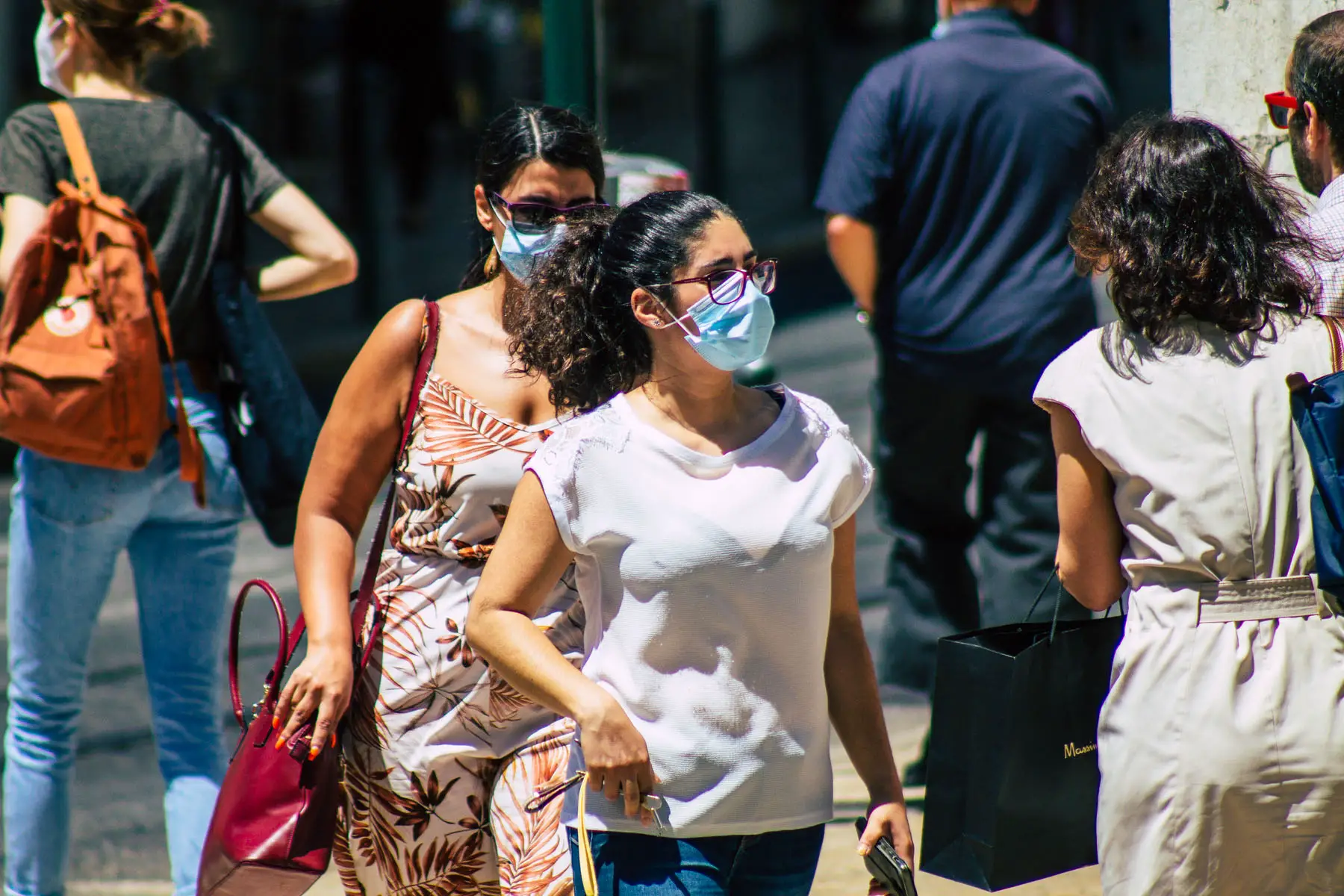
The government has provided financial aid and other resources. However, for some, this hasn’t been enough to keep their businesses afloat. So far, support for Portuguese businesses and the self-employed have included the following:
- Funding to pay employees of companies who had to shut or pause their activity due to restrictions
- Financial aid for companies that have been critically affected by the pandemic
- Subsidies for the self-employed who have lost earnings, including tax payment exemptions
- Additional support to help implement health, social distancing, and safety measures
The Portuguese government has also set up a wide range of support for citizens and residents.
COVID-19 and education in Portugal
Schools and universities were among the first places to close when Portugal went into lockdown. Overall, COVID-19 has severely impacted the education system. For example, exams were canceled or postponed, and homeschooling replaced in-person lessons.
Unfortunately, many schools weren’t ready to go digital. In fact, a recent study (in Portuguese) revealed that 92% of schools had little equipment or poor internet connection. This, along with the lack of resources at home, had a massive impact on students. The study also highlighted the disproportionate effect on low-income families and schools in rural regions.
To help tackle this resource shortage, the Ministry of Education introduced the campaign Escola Digital. They also created a platform for remote learning called Estudo em Casa.
Support for vulnerable people in Portugal during coronavirus
Throughout the pandemic, special attention has been given to the elderly population and people with chronic conditions. These high-risk groups had to isolate themselves much longer than others. Because of this, they received support from the government, the local council, and even close neighbors. Initiatives have included:
- Priority supermarket entry times
- Neighborhood grocery and prescriptions delivery
- Tele-friends for isolated residents
For any health-related issues, you should contact the National Healthcare hotline. Additionally, if you are looking to get involved with neighborhood community support, you can reach out to SOS Vizinho. Furthermore, private health insurance providers such as Allianz Care and Cigna Global offer additional cover and support.
